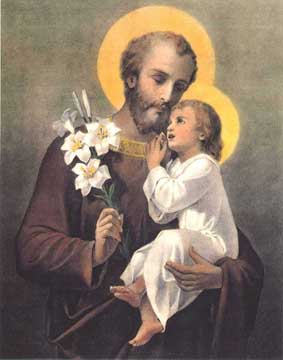Anglican Ordinariates: Ecumenism in Action
Examining the Pope’s personal investment in the foundation of the ordinariates that are accommodating former Anglicans who come into the Catholic Church.
LONDON — Pope Benedict XVI pushed ecumenism far beyond mere dialogue in his efforts towards Christian unity.
According to many observers, that is the inescapable conclusion that is generated when examining the Pope’s personal investment in the foundation of the ordinariates that are accommodating former Anglicans who come into the Catholic Church.
In 2011, the Ordinariate of Our Lady of Walsingham was founded in England and Wales for the reception of Anglicans into full communion with the Catholic Church, while maintaining their distinctive Anglican patrimony. A year ago, the Ordinariate of the Chair of St. Peter was established in the U.S., while the Ordinariate of Our Lady of the Southern Cross was established in Australia last June.
Having made the accommodation of former Anglicans with their patrimony his personal project by enacting his 2009 apostolic constitution Anglicanorum Coetibus, Pope Benedict’s actions in creating these foundations could prove to be a major lasting legacy of his pontificate.
This is a fact particularly recognized by the ordinary of the U.S. ordinariate, Msgr. Jeffrey Steenson. In a Feb. 11 statement, he commented that "members of the ordinariate are in a particular way the spiritual children of His Holiness Pope Benedict XVI."
Msgr. Steenson noted that ever since Pope Benedict’s time as prefect of the Congregation for the Doctrine of the Faith, "the reconciliation of Anglicans to the Catholic Church has been one of his principal tasks."
Despite expressing sadness at the Pope’s abdication, Msgr. Steenson said there is also "a deeper joy, knowing that we are the fruit of his vision for Catholic unity."
Underlining the Pope’s personal role in the ordinariates, Msgr. Steenson noted that, as a short-term consequence of his resignation, there could be a delay in ordinations to the groups (as the pope must personally approve these). But, he noted, "while the ordinariate has been a special intention of Pope Benedict, it is now firmly established in the Catholic Church and will continue to serve as an instrument for Christian unity."
Msgr. Keith Newton, ordinary of the Ordinariate of Our Lady of Walsingham, told the Register that the Pope had played a vital personal role in the foundation of the communities. He said that he knew "some of the decisions concerning Anglicanorum Coetibus he took himself," and he added that "the fact that I had a private audience with him soon after I was appointed was indicative of his interest."
Msgr. Newton described the Pope’s actions as "an ecumenical gesture."
He continued, "Often, ecumenical dialogue is just that; there is much talk, but with little concrete to show. In the ordinariate, the Pope is showing, if in a small way, that the Church of Christ can be diverse, providing there is a common faith and all members are in full communion. I think it is a small experiment in receptive ecumenism."
Referencing Summorum Pontificum, Pope Benedict’s 2007 motu proprio that authorized the Church-wide celebration of the Mass in its "extraordinary form" according to the 1962 Roman Missal, Msgr. Newton added, "I think Summorum Pontificum and Anglicanorum Coetibus are part of one vision of the Church."
In September 2011, the then-prefect of the Congregation for the Doctrine of the Faith, U.S. Cardinal William Levada, described the ordinariate as "the Pope’s project."
The results are bearing fruit. The Ordinariate of the Chair of St. Peter includes 36 communities, 30 priests and more than 1,600 people in the United States and Canada. In an example of diversity in unity, Msgr. Steenson commended all ordinariate communities in North America to sing a solemn Te Deum of Thanksgiving on Feb. 22, the solemnity of the Chair of St. Peter, despite the prayer not usually being heard during Lent.
Blessed John Henry Newman, the famous 19th-century convert from the Anglican Church, has a special place in the hearts of those involved with the ordinariates.
Pope Benedict took an unusual step in personally celebrating the beatification Mass of the 19th-century convert and cardinal during his 2010 U.K. visit. That decision underlined his investment in the foundation of the ordinariates and the search for Christian unity that they represent.
James Kelly writes from London.
- Keywords:
- March 10-23, 2013

















